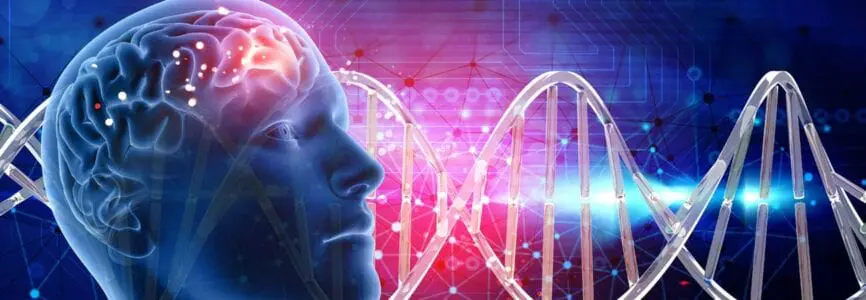Hastings Center News
Looking for the Psychosocial Effects of Genomic Test Results
For the last quarter century, researchers have been asking whether genetic test results might have negative psychosocial effects. Anxiety, depression, disrupted relationships, and heightened stigmatization have all been posited as possible outcomes—but not consistently found. What accounts for the discrepancy?
A public conference in New York on February 26 and 27 explored what we know and don’t know and proposed next steps for research, clinical practice, and policy. It was hosted by the Center for Research on Ethical, Legal, and Social Implications of Psychiatric, Neurologic, and Behavioral Genetics, a collaborative project of Columbia University Medical Center and The Hastings Center. See the agenda and abstracts here. Watch the presentations here. Follow the discussion on Twitter #PsychSocialGenomics.
In his opening remarks, Erik Parens, senior research scholar at The Hastings Center and a co-organizer of the conference, suggested that geneticists and bioethicists are on similar learning curves. Whereas at the start of the Human Genome Project geneticists had rather simplistic conceptions of the effects that single genes have on common disorders, today they have far more complex conceptions. Parens said that researchers who investigate the ethical, legal, and social implications of genomics need to adopt more complex conceptions of the effects that genomic information has on the psychosocial functioning of the individuals who receive it.
At this early stage, much of the information that genome sequencing yields is uncertain. Many of the speakers discussed the implications of this uncertainty, including uncertainty about the risk of cancer.
Several speakers presented recent research findings on how people respond when they learn that they, their child, or their fetus is at risk of a serious condition. The findings suggest that symptoms of depression, anxiety, and suicidality, which had been feared early in the history of genetic testing, are not common and that if they occur they are usually transient. But speakers also said that testing can be associated with more subtle negative effects. For example, some people report long-term worrying or feelings of hypervigilance, and some groups of people may be especially vulnerable to negative effects.
Distress caused by test results is especially salient in prenatal genetic screening, where data shows that uncertain findings are particularly troubling to pregnant women. How these findings affect the parent-child relationship over time is just beginning to be explored.
Other sessions examined the impact of genomic information on perceptions of “others,” including people who are identified as being at increased risk for antisocial behaviors or mental illnesses. Genomic information is being introduced with increasing frequency in court cases, particularly to support defense arguments for reduced punishment. Paul S. Appelbaum, the Elizabeth K. Dollard Professor of Psychiatry, Medicine and Law, and director of the Center for Law, Ethics and Psychiatry at Columbia University and co-organizer of the conference, said that genetic evidence seems to have little or no effect on lay people’s assessments of guilt and sentencing, leading him to speculate on the limited future of such evidence in criminal court. Appelbaum is a Hastings Center Fellow.
Several presenters voiced concern about commercial interests driving the use of genetic tests before scientific evidence supports their accuracy and benefit. While commercial interests have always influenced the use of medical technology, their influence on genetic testing has grown so large that one presenter termed it a “renegade phenomenon.”

